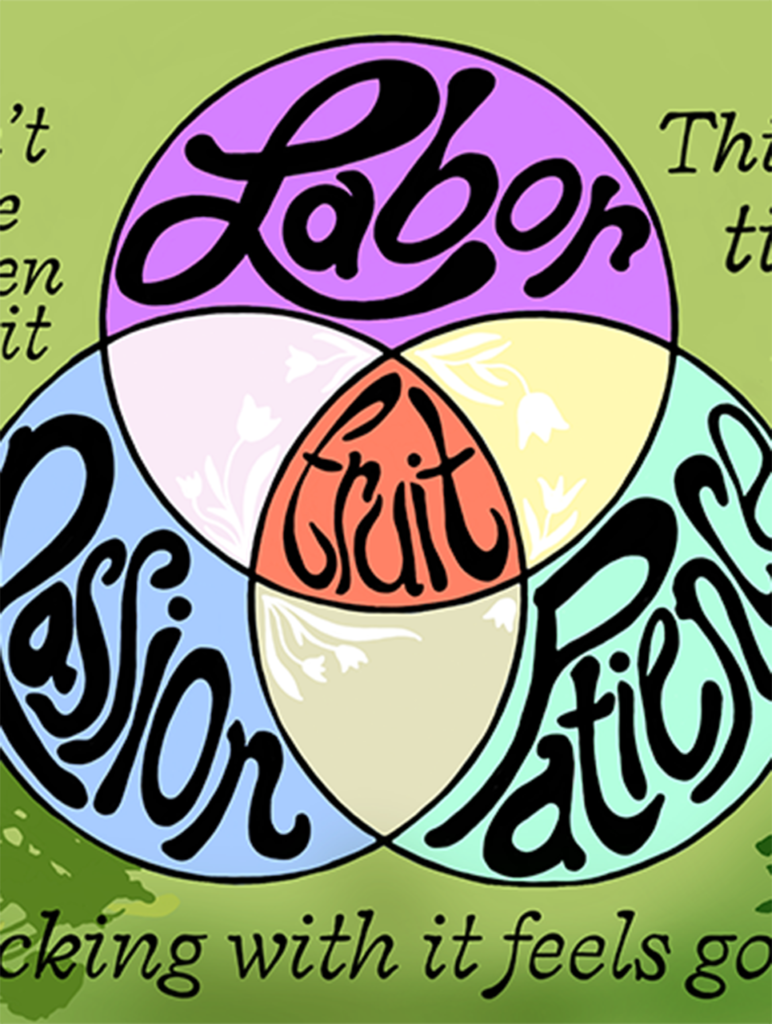Illustration by Laura Weiszer
School’s Out
by Jerry Silberman
Question: What college program can best prepare me for a career in mitigating and adapting to climate change?
The Right Question: Is going to college the best choice?
Education, especially college and postgraduate education, is extremely expensive. And yet, the proportion of young people enrolling in some level of secondary education continues to climb, under the assumption that higher education is the key to a good job.
In 1940, 4 percent of Americans had bachelor’s degrees, and 25 percent were high school graduates. Today’s percentages are 34 and 91 percent, respectively. Graduate education—not even broken out from bachelor’s degrees in 1940—has exploded to 12 percent today.
Has all this education improved the chances of a rewarding career, either financially or in terms of self-fulfillment? It’s easy to argue no.
Education inflation means that a college graduate today has a real earnings expectation equivalent to a high school graduate 50 years ago. College degrees are now expected for many jobs that needed no educational preparation a generation ago. (For example, hotel desk clerks now have degrees in “hospitality management.”) Arguably, many jobs today require less skill and training than their analogous positions in the past due to automation and computerization, while others require more.
Meanwhile, average real earnings in the U.S. peaked in the early ’70s and have been basically unchanged since then. To reach that average requires substantially more education than it did previously. The decline in real income for families has been masked by the increased instance of two-wage earner households.
Add to these previous facts the idea that the debt that many young people now acquire in the pursuit of a degree may reduce the value of that degree. It could even constrain their life choices as they struggle to make their payments.
Here is where the sustainability of our society comes into play: Money implies energy, and college education consumes vast quantities of both.
Since most contemporary college education is glorified training for jobs that are wedded to the values of accumulating money and consuming goods—misguided values at the heart of our climate-busting society—isn’t it time to rethink the educational model along with other major aspects of how we live today?
If you are a college graduate, think hard about the relationship between your years in the classroom and your current career. How much did it really help with the knowledge you actually use on the job? Once hired, how much did you learn from more experienced co-workers? Set aside, for a moment, the inflation factor—that is, the fact that you needed your degree to get the interview.
Among my co-workers in my day job, there are several advanced degrees: doctorates, master’s degrees, professional degrees (for professions no longer practiced) and a few lowly B.A.’s. In my experience, none of these designations had any relevance to being a competent union organizer; for some, it got in the way.
In response to both climate change and the depletion of fossil fuels, life must and will become simpler. How complicated is it to learn that we must reduce our consumption and lighten our impact on the planet?
The most critical job in this country, which desperately needs an infusion of youth, is farming. Farming has always been learned on the job, and the best farmers are those who have the keenest ability to observe and learn from the specific experience on their farm, discovering over time what works for which crops and for which animals.
It’s no accident that, historically, farming has been a more thoroughly hereditary calling than any other (except perhaps monarchy). Although farm children who intend to stay on the farm recently have been going to school for degrees in agriculture, their education has a context and builds on what they have been learning on the farm since they first learned to walk.
Many of our nation’s most sustainable and energy efficient farmers have had only an eighth grade education. I am referring of course to the Amish and other Plain people who have refused to accept the “technology first” value that dominates our society. Amish agriculture depends on solar energy—stored in the food consumed by the farm family and its work animals—and uses a tiny fraction of the fossil fuel inputs of conventional agriculture. These practices generate the same, or better, productivity per acre.
A sustainable agriculture, weaning itself from fossil fuels, will employ far greater than the current 2 percent of the workforce. Some of the young people who would now like to enter farming are unable to do so because it is a low wage job, especially at the beginning. Huge student loans make subsisting on a farmer’s earnings impossible.
College today is, for the vast majority, a part of the consumption treadmill, leading to neither happiness nor economic security, and postponing for many years a young adult’s ability to assert control over the direction of his or her own life. We need practical education tailored to face the ongoing long emergencies of depleting resources and accelerating climate change. You’re more likely to find that in an intensively grazed pasture than in the Ivy League.
Jerry Silberman is a cranky environmentalist and union negotiator who likes to ask the right question and is no stranger to compromise.








